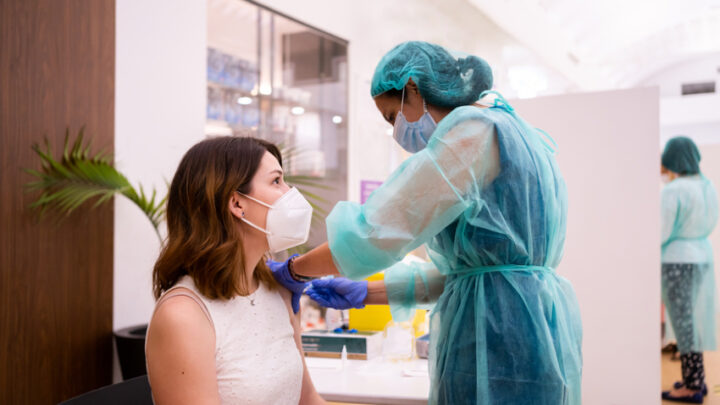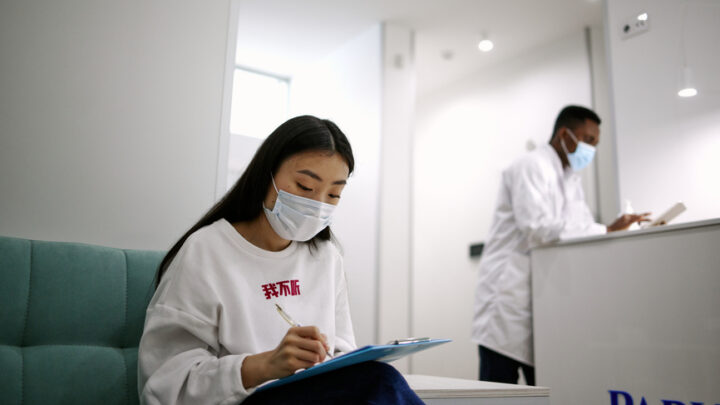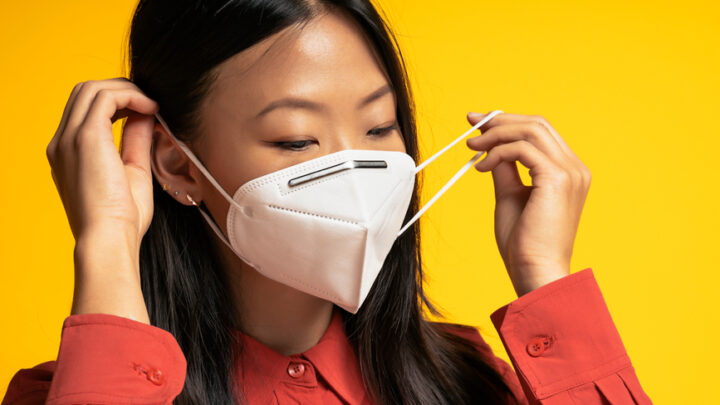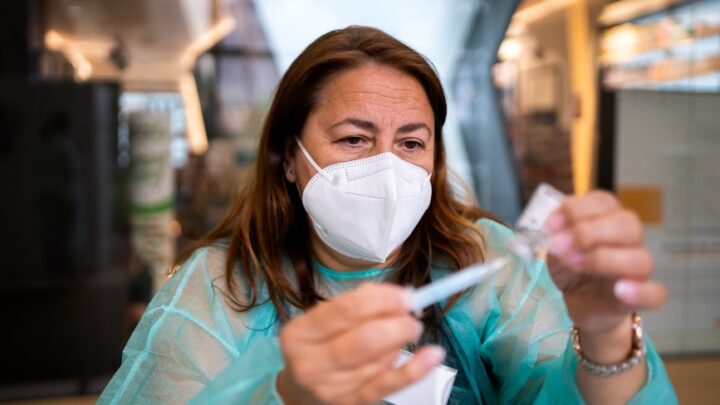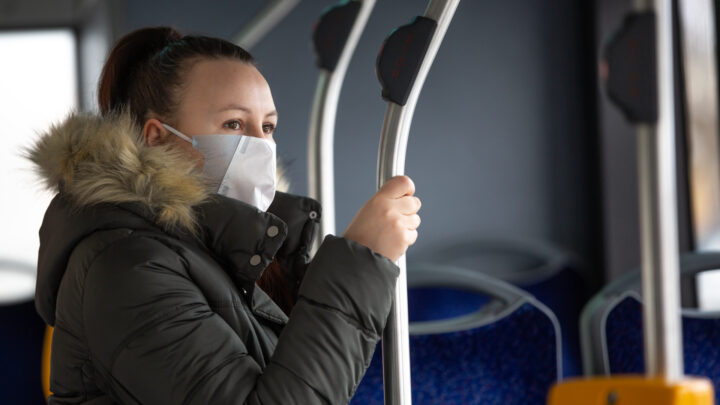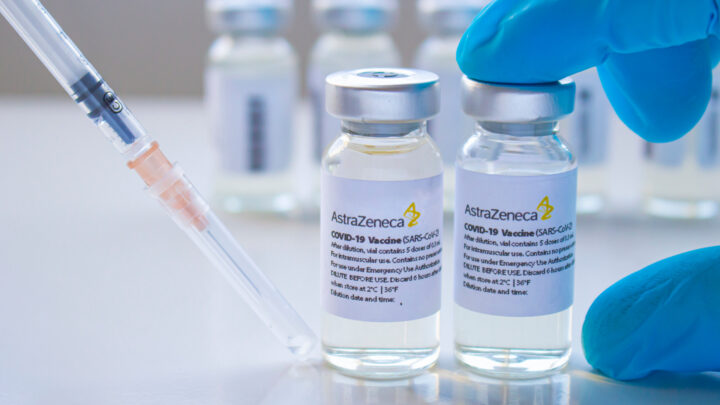
National Immunization Awareness Month is held every August to highlight the importance of vaccinations for people of all ages. This year, raising awareness is more critical than ever as the Covid-19 Delta variant rapidly spreads across the globe. Governments and physicians alike are urgently trying to get as many people vaccinated against the coronavirus as quickly as possible. In addition to the momentum surrounding the covid vaccines, this year there is also an imperative drive to get children’s routine vaccinations up to date. Millions of children missed out on annual vaccinations due to the pandemic, according to an alarming study published in the Lancet.
“Routine immunisation services faced stark challenges in 2020, with the COVID-19 pandemic causing the most widespread and largest global disruption in recent history. Although the latest coverage trajectories point towards recovery in some regions, a combination of lagging catch-up immunisation services, continued SARS-CoV-2 transmission, and persistent gaps in vaccine coverage before the pandemic still left millions of children under-vaccinated or unvaccinated against preventable diseases at the end of 2020, and these gaps are likely to extend throughout 2021. Strengthening routine immunisation data systems and efforts to target resources and outreach will be essential to minimise the risk of vaccine-preventable disease outbreaks, reach children who missed routine vaccine doses during the pandemic, and accelerate progress towards higher and more equitable vaccination coverage over the next decade…”
When asked about these hot-button vaccination issues, Sermo physicians had a lot to say. In a recent poll of 1,470 doctors, 67% said they have personally witnessed routine vaccinations in children being missed due to the pandemic. And 77% are concerned that due to the highly contagious Delta variant, routine vaccinations will continue to be skipped this year. In addition, 82% of doctors are concerned that there could be outbreaks of the measles or other vaccine-preventable diseases due to the drop in routine inoculations. Because of this, 92% of physicians say we need large-scale campaigns—along the lines of the Covid-19 vaccination campaigns—to remind parents of the necessity of keeping childhood vaccinations up to date.
Another pressing issue is vaccine hesitancy. While the Delta variant continues to spread rapidly in many areas around the world, people who are vaccinated—even if they experience breakthrough cases—are generally protected from serious illness. That said, many people are still vaccine hesitant. In a recent poll of 1,000+ global physicians, 89% reveal they have patients, colleagues, and/or friends and family who are vaccine hesitant. Regarding indoor mask-wearing, 91% of physicians recommend indoor mask wearing for unvaccinated individuals; and 79% recommend it for vaccinated individuals.
Vaccine requirements vary by state, region, and country, and the views and opinions can be polarizing. When asked about vaccine requirements, 94% of doctors said they support vaccine requirements for healthcare workers who are patient-facing. And 89% support vaccine requirements for all individuals parting in certain activities—such as indoor dining, performances, gyms, etc.
Eighty-eight percent of doctors believe schools should eventually require Covid-19 vaccinations—when they are approved for children—as they do for other routine vaccinations. Eighty-three percent said their patients are more reluctant to vaccinate their children with the Covid-19 vaccine than they are other routine vaccines that have been around longer.
Regarding booster shots, 91% believe that they will eventually be necessary; and 66% said the Delta variant is changing their perception of how much protection the Covid-19 vaccines offer.
Here is more of what Sermo physicians have to say regarding immunization:
The available evidence is scant, but it would be wise to require indoor vaccination
Ophthalmology, Spain
Vaccine passports should be needed for all hospital entry, aged care facilities entry, sporting arenas, public transport and virtually every public indoors entry as well as the ones you have listed.
Ophthalmology, Australia
Yes, complete vaccination proof should be required for any of the considered ‘risky-crowded’ activities; some of these not always indoors, though.
Oncology, Argentina
Science is an ever evolving process and COVID-19 should be no different than any other pandemic.
Orthopedic Surgery, United States
Amazing how many here want mandatory vaccination. Why should a person who recovered from Covid 19 get vaccinated? And why should children get this vaccination given the fact they have few negative consequeneces if they were to get the illness and given the real risk of Myocarditis ? What about personal choice? What about informed consent for a vaccine that does not have full FDA approval? How many centers where people get the vaccine are doing true informed consent? Coercive practices such as monetary incentives for vaccination and ostracism if one chooses not to get the vaccine are a violation of informed consent.
Psychiatry, United States
yes, Vaccines should be mandatory. Individuals protect community so community can protect individuals. We cannot allow misinformed people to endanger vulnerable ones- the very young, the old and the immune suppressed. Any place where people congregate in proximity to each other should have a strict policy of allowing only vaccinated people. If they cannot be vaccinated for medical reasons, they need to provide negative screens as many times as necessary. Everyone should still abide by recommended Covid precautions.
Pediatrics, Canada
No- children are not affected much with Covid and forcing vaccine which we do not have long term benefits/ risks- should not be enforced.
Internal Medicine, United States
Science is an ever evolving process and COVID-19 should be no different than any other pandemic.
Orthopedic Surgery, United States
